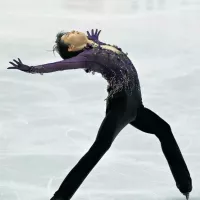Slovakia, officially the Slovak Republic, is a landlocked Central European nation. It shares borders with Poland, Ukraine, Hungary, Austria, and the Czech Republic. Its largely mountainous terrain covers approximately 49,000 square kilometers and is home to over 5.4 million people. Bratislava is the capital and largest city, followed by Košice as the second largest.
October 1918: United States played a role in the establishment of Czechoslovakia
On 28 October 1918, President Woodrow Wilson and the United States played a major role in the establishment of the original Czechoslovak state.
October 1918: Declaration of Independence in Washington, D.C.
On October 18, 1918, independence for the territories of Bohemia, Moravia, Silesia, Upper Hungary and Carpathian Ruthenia from the Austro-Hungarian Empire was declared in Washington, D.C., and the common state of Czechoslovakia was proclaimed.
1918: Proclamation of Czechoslovakia
In 1918, the state of Czechoslovakia was proclaimed amidst the collapse of the Austro-Hungarian Empire.
1918: Collapse of Austria-Hungary
Up until 1918 and the collapse of Austria-Hungary, the territory of Slovakia was an integral part of the Hungarian state.
1919: Establishment of Comenius University
In 1919, Comenius University, the biggest university in Slovakia, was established.
1919: Treaty of Saint Germain
In 1919, the Treaty of Saint Germain helped establish Czechoslovakia as a sovereign European state.
1920: Treaty of Trianon
In 1920, the Treaty of Trianon helped establish Czechoslovakia as a sovereign European state.
1925: Locarno Treaties
In 1925, the Locarno Treaties left East European security open.
1935: Release of the film Jánošík
In 1935, Martin Frič directed the film Jánošík.
1937: Sought to reverse Munich Agreement
The Czechoslovak government-in-exile sought to reverse the Munich Agreement to return to the Republic to its 1937 boundaries.
November 1938: First Vienna Award
In November 1938, parts of southern and eastern Slovakia were reclaimed by Hungary at the First Vienna Award.
1938: Carpathian Germans in Slovakia
Out of about 130,000 Carpathian Germans in Slovakia in 1938, by 1947 only some 20,000 remained.
March 1939: Slovakia Secedes from Czecho-Slovakia
In March 1939, Slovakia seceded from Czecho-Slovakia and allied itself with Hitler's coalition, creating the first Slovak state in history.
1939: Establishment of the First Slovak Republic
In 1939, the first Slovak Republic was established as a clerical fascist client state under Nazi Germany's control.
November 1940: Slovakia Joins the Axis
On November 24, 1940, Slovakia joined the Axis powers by signing the Tripartite Pact.
1940: Joining the Axis Powers
In 1940, Slovakia joined the Axis powers when its leaders signed the Tripartite Pact.
1941: Invasion of the Soviet Union
In 1941, Slovakia sent troops to the invasion of the Soviet Union as part of its collaboration with Nazi Germany.
1944: Slovak National Uprising
Near the end of summer in 1944, internal opposition to the fascist government's policies culminated in the Slovak National Uprising.
February 1945: Yalta Conference
As a result of the Yalta Conference in February 1945, Czechoslovakia came under the influence of the Soviet Union.
April 1945: Liberation of Slovakia
By the end of April 1945, the territory of Slovakia was liberated by Soviet and Romanian forces.
1945: Re-establishment of Czechoslovakia
In 1945, Czechoslovakia was re-established after its liberation at the end of World War II.
1947: Execution of Jozef Tiso
In 1947, after World War II, Jozef Tiso was executed for collaboration with the Nazis.
February 1948: Communist Coup
In February 1948, the Communist Party of Czechoslovakia, with Soviet backing, assumed undisputed control through a coup d'état.
1948: Communist Coup
Following the Soviet-backed coup of 1948, Czechoslovakia became a communist state within the Eastern Bloc.
1948: International laws signed
In 1948, Slovakia signed multiple international laws guaranteeing human rights.
1948: Founding of the Slovak National Gallery
In 1948, the Slovak National Gallery, the biggest network of galleries in Slovakia, was founded.
1950: Support for North Korea
In 1950, Czechoslovak communist leaders considered the intervention against North Korean aggression illegal and sent resolutions against "American imperialism" to the United Nations.
1952: Military Hospital Sent to North Korea
During the Korean War, in 1952, Czechoslovakia sent a military hospital with two hospital teams consisting of 58 people to North Korea.
1953: Forced Labor Camps
8,240 people were sent to forced labor camps in 1948–1953.
1953: Slovak Academy of Sciences established
Since 1953, the Slovak Academy of Sciences has been the most important scientific and research institution in the country.
1959: Cuban Revolution
In 1959, after Fidel Castro took power after the Cuban Revolution, Czechoslovakia opened an embassy in Cuba and developed mutual relations.
July 1960: Constitution of Czechoslovakia
On July 11, 1960, the Constitution of Czechoslovakia was promulgated, changing the country's name to the "Czechoslovak Socialist Republic".
1961: Founding of the Bratislava City Gallery
In 1961, the Bratislava City Gallery, the second biggest Slovak gallery of its kind, was founded.
August 1968: Castro Denounces Prague Spring
In August 1968, Fidel Castro denounced the Prague Spring as led by a "fascist reactionary rabble" and praised the Soviet invasion of Czechoslovakia.
August 1968: Warsaw Pact Invasion
In August 1968, the Prague Spring's attempts to liberalize communism were suppressed by the Warsaw Pact invasion of Czechoslovakia.
1968: Warsaw Pact Invasion
In 1968, Czechoslovakia was invaded by the Warsaw Pact forces, ending the period of liberalization known as the Prague Spring; 137 civilians were killed and 500 were seriously wounded during the invasion.
1969: Czechoslovak Federation
In 1969, Czechoslovakia became a federation of the Czech Socialist Republic and the Slovak Socialist Republic within the Czechoslovak Socialist Republic.
1989: Velvet Revolution
In 1989, the Velvet Revolution peacefully ended Communist rule in Czechoslovakia.
1989: End of Communist Rule
In 1989, the end of Communist rule in Czechoslovakia during the peaceful Velvet Revolution led to the country's dissolution into two successor states.
1990: US census
In the 1990 US census, 1.8 million people self-identified as having Slovak ancestry.
July 1992: Declaration of Sovereignty
In July 1992, Slovakia declared itself a sovereign state, meaning its laws took precedence over those of the federal government.
September 1992: Constitution of the Slovak Republic ratified
In September 1992, the Constitution of the Slovak Republic was ratified.
December 1992: Dissolution of Czechoslovakia
In December 1992, the federal parliament voted to dissolve Czechoslovakia officially on December 31, 1992.
1992: Constitution of Slovakia
In 1992, Human rights in Slovakia are guaranteed by the Constitution of Slovakia.
1992: UNPROFOR participation
In 1992, Slovakia became an active participant in UNPROFOR, a United Nations peacekeeping military mission in Yugoslavia.
January 1993: Velvet Divorce
On January 1, 1993, Slovakia became an independent democratic state after the peaceful dissolution of Czechoslovakia, also known as the Velvet Divorce.
January 1993: Constitution of the Slovak Republic became effective
On January 1, 1993, the Constitution of the Slovak Republic became effective.
February 1993: Election of Michal Kováč
In February 1993, Michal Kováč became the first President of the Slovak Republic, elected by the National Council of Slovakia.
February 1993: Slovakia Joins IIHF
In February 1993, Slovakia became a member of the IIHF.
March 1993: Ratification of UNESCO Convention
On March 31, 1993, Slovakia ratified the UNESCO World Heritage Convention.
April 1993: Joined GATT
On April 15, 1993, Slovakia joined GATT (current World Trade Organization).
May 1993: Slovakia signed the Rio Convention on Biological Diversity
In May 1993, Slovakia signed the Rio Convention on Biological Diversity.
1993: UNOMUR participation
In 1993, Slovakia participated in UNOMUR in Uganda and Rwanda, a United Nations peacekeeping military mission.
1993: Vlkolínec Becomes a UNESCO World Heritage Site
In 1993, the village of Vlkolínec was named a UNESCO World Heritage Site.
1993: Slovak National Football Team Since 1993
Since 1993, Slovak national football team has over 400,000 registered players.
1993: Slovakia joined the United Nations
Since 1993, Slovakia is a member of the United Nations and participates in its specialised agencies.
August 1994: Slovakia became a party to the Rio Convention
In August 1994, Slovakia became a party to the Rio Convention on Biological Diversity.
1994: UNOMUR participation
In 1994, Slovakia participated in UNOMUR in Uganda and Rwanda, a United Nations peacekeeping military mission.
1994: Organised crime becomes well established
In 1994, during Vladimír Mečiar's government, organised crime became well established in Slovakia and penetrated high political positions.
1995: Kidnapping of Michal Kováč Jr.
In 1995, Michal Kováč Jr., the Slovak president's son, was kidnapped in an event organised by the Slovak intelligence service and Vladimír Mečiar's government.
1995: UNPROFOR participation
In 1995, Slovakia participated in UNPROFOR, a United Nations peacekeeping military mission in Yugoslavia.
1996: UNTAES participation
In 1996, Slovakia became an active participant in UNTAES in Croatia, a United Nations peacekeeping military mission.
1997: MFK Košice qualified for UEFA Champions League Group Stage
In 1997, MFK Košice qualified for the UEFA Champions League Group Stage.
1997: UNOMIL participation
In 1997, Slovakia became an active participant in UNOMIL in Liberia and MONUA in Angola, United Nations peacekeeping military missions.
March 1998: Slovakia without a head of state
In March 1998, Slovakia began a 14-month period without a head of state due to the National Council's repeated failure to elect a new president.
September 1998: Amendment to allow direct election of the president
In September 1998, the Constitution was amended to allow direct election of the president.
November 1998: National Biodiversity Strategy and Action Plan received
In November 1998, Slovakia's National Biodiversity Strategy and Action Plan was received by the Rio Convention.
1998: Mikuláš Dzurinda replaces Vladimír Mečiar as Prime Minister
In 1998, Mikuláš Dzurinda replaced Vladimír Mečiar as Prime Minister of Slovakia and relaunched stalled transformation processes.
1999: Peak unemployment
At the end of 1999, unemployment in Slovakia peaked at 19%.
1999: Ivan Bella in space
In 1999, Ivan Bella became the first and only Slovak citizen to fly in space.
1999: Rudolf Schuster became President
In 1999, Rudolf Schuster became the second President of Slovakia, the first directly-elected president.
1999: Introduction of a direct presidential election
In 1999, due to the repeated failures to elect a new president, Slovakia introduced a direct presidential election.
December 2000: Slovakia became a member of OECD
On December 14, 2000, Slovakia became a member of the Organisation for Economic Co-operation and Development (OECD).
2000: Start of the Bronze Age
Around the year 2000 BCE, the Bronze Age began in the geographical territory of modern-day Slovakia, marking the start of a three-stage period of development.
2000: Bratislava Airport passenger traffic
In 2000, Bratislava Airport served 279,028 passengers.
2000: UNGCI and UNMEE participation
In 2000, Slovakia became an active participant in UNGCI in Iraq and UNMEE in Ethiopia and Eritrea, United Nations peacekeeping military missions.
2000: "Tatra Tiger" transformation
In the 2000s, Slovakia transformed to a market-driven economy and achieved roughly 6% per capita GDP growth each year from 2000.
February 2001: Amendment due to EU admission requirements
In February 2001, the Constitution was amended due to EU admission requirements.
2001: UNMISET participation
In 2001, Slovakia became an active participant in UNMISET in East Timor, United Nations peacekeeping military mission.
2002: KFOR and Operation Enduring Freedom participation
In 2002, Slovakia became an active participant in KFOR in Kosovo and Operation Enduring Freedom in Afghanistan, United Nations peacekeeping military missions.
2002: Regions Autonomy
Since 2002, regions in Slovakia have enjoyed a certain degree of autonomy.
2003: EUFOR Concordia and Operation Iraqi Freedom participation
In 2003, Slovakia became an active participant in EUFOR Concordia in Macedonia and Operation Iraqi Freedom in Iraq, United Nations peacekeeping military missions.
March 2004: Slovakia became a member of NATO
On March 29, 2004, Slovakia became a member of the North Atlantic Treaty Organization (NATO).
May 2004: Slovakia became a member of the European Union
On May 1, 2004, Slovakia became a member of the European Union.
2004: UNMEE participation
In 2004, Slovakia became an active participant in UNMEE in Ethiopia and Eritrea, United Nations peacekeeping military missions.
2004: Slovakia joined the European Union and NATO
In 2004, Slovakia joined the European Union and NATO.
2004: Church Attendance
In 2004, approximately one third of church members in Slovakia regularly attended church services.
October 2005: Slovakia elected to the UN Security Council
On October 10, 2005, Slovakia was elected to a two-year term on the UN Security Council.
2005: FC Artmedia Bratislava qualified for UEFA Champions League Group Stage
In 2005, FC Artmedia Bratislava qualified for the UEFA Champions League Group Stage.
2005: Operation Enduring Freedom and UNAMSIL participation
In 2005, Slovakia became an active participant in Operation Enduring Freedom in Afghanistan and UNAMSIL in Sierra Leone, United Nations peacekeeping military missions.
2006: UN Security Council
From 2006 Slovakia served a two-year term on the UN Security Council.
2006: Abolishment of compulsory military service
From 2006, the army transformed into a fully professional organisation and compulsory military service was abolished.
2006: Robert Fico became Prime Minister
In 2006, Robert Fico became Prime Minister of Slovakia for the first time.
2006: EU supporting action to African Union participation
In 2006, Slovakia became an active participant in EU supporting action to African Union in Darfur, United Nations peacekeeping military mission.
2006: International laws signed
In 2006, Slovakia signed multiple international laws guaranteeing human rights.
2006: End of Dzurinda's term
In 2006, the second Dzurinda government term ended after two successive governments between 1998 and 2006.
December 2007: Slovakia joined the Schengen area
On December 21, 2007, Slovakia joined the Schengen Area, allowing visa-free travel.
2007: Foreign languages knowledge
In 2007, 68% of the population aged from 25 to 64 years claimed to speak two or more foreign languages.
2007: Operation Iraqi Freedom participation
In 2007, Slovakia became an active participant in Operation Iraqi Freedom in Iraq, United Nations peacekeeping military mission.
2007: Slovakia joined the Schengen Area
In 2007, Slovakia joined the Schengen Area.
2007: Largest producer of cars per capita
Since 2007, Slovakia has been the world's largest producer of cars per capita.
2007: End of term on UN Security Council
Slovakia completed its two-year term on the UN Security Council in 2007.
May 2008: European commission approval
On 7 May 2008, The euro in Slovakia was approved by the European commission.
2008: GDP growth
In 2008, Slovakia was still experiencing the "Tatra Tiger" years, achieving roughly 6% per capita GDP growth each year from 2000 to 2008.
2008: Slovak economy slowdown during the global financial crisis
In 2008, the Slovak economy experienced a major slowdown during the global financial crisis.
January 2009: Slovakia adopted the Euro
On January 1, 2009, Slovakia adopted the Euro as its national currency.
January 2009: Adoption of the Euro
On January 1, 2009, Slovakia adopted the euro currency, becoming the 16th member of the Eurozone.
2009: Ivan Gašparovič re-elected as president
In 2009, Ivan Gašparovič became the first and only Slovak president to be re-elected.
2009: Slovakia joined the Eurozone
In 2009, Slovakia joined the Eurozone.
2010: Iveta Radičová became Prime Minister
In 2010, Iveta Radičová became the first female Prime Minister of Slovakia.
2010: MŠK Žilina qualified for UEFA Champions League Group Stage
In 2010, MŠK Žilina qualified for the UEFA Champions League Group Stage.
2010: Observer status to European Space Agency
In 2010, Observer status to European Space Agency (ESA) was granted.
2010: FIFA World Cup Qualification
In 2010, the Slovak national football team qualified for the FIFA World Cup and progressed to the last 16.
2010: 2010 Winter Olympics
In 2010, the Slovak national hockey team finished fourth in the Winter Olympics in Vancouver.
2010: Muslim Population in Slovakia
In 2010, the estimated Muslim population in Slovakia was 5,000, representing less than 0.1% of the country's population.
2011: Slovakia Hosted 2011 IIHF World Championship
In 2011, Slovakia hosted the IIHF World Championship, which took place in Bratislava and Košice, where Finland won the gold medal.
2012: Eurobarometer survey
According to a Eurobarometer survey from 2012, 26% of the population have knowledge of English at a conversational level.
2012: Collapse of Radičová's government
In 2012, Radičová's government collapsed after the Slovak parliament rejected the European Financial Stability Facility (EFSF).
2012: Robert Fico became Prime Minister for the second time
In 2012, Robert Fico became Prime Minister for the second time after his party won the election.
2012: Silver Medal at IIHF World Championship
In 2012, the Slovak national hockey team won a silver medal at the IIHF World Championship in Helsinki.
2014: Andrej Kiska became President
In 2014, Andrej Kiska became the fourth President of Slovakia.
2014: Ban on export of drinking and mineral waters in pipelines and water tanks
Since 2014, the export of drinking and mineral waters in pipelines and water tanks is banned in Slovakia.
2015: European Cooperating State Agreement
In 2015, Slovakia signed the European Cooperating State Agreement.
2015: European migrant crisis
In 2015, the European migrant crisis impacted Slovak politics.
2016: Robert Fico became Prime Minister for the third time
In 2016, Robert Fico became Prime Minister for the third time, becoming the longest-serving prime minister in Slovak history.
2016: Bill Obstructing Religious Organisations
In 2016, the Slovak parliament passed a bill to obstruct Islam and other religious organisations from becoming state-recognized religions. The bill was later vetoed by the president.
2017: OECD Report
In 2017, the OECD issued a report.
2017: Slovak economy growth
In 2017, the Slovak economy was one of the fastest-growing economies in Europe and 3rd-fastest in eurozone.
2017: Tourist Visited
More than 5,4 million tourists visited Slovakia in 2017.
February 21, 2018: Murder of Ján Kuciak and his fiancée
On February 21, 2018, investigative journalist Ján Kuciak and his fiancée were murdered, leading to mass protests.
2018: Car production
In 2018 alone, Slovakia manufactured a total of 1,090,000 cars.
2018: Bratislava Airport passenger traffic
In 2018, Bratislava Airport served 2,292,712 passengers.
2018: Median age of the population
In 2018, the median age of the Slovak population was 41 years.
2019: Forest Landscape Integrity Index
In 2019, Slovakia had a Forest Landscape Integrity Index mean score of 4.34/10, ranking it 129th globally.
2019: Slovakia Hosted 2019 IIHF World Championship
In 2019, Slovakia hosted the IIHF World Championship, which took place in Bratislava and Košice, where Finland won the gold medal.
2019: Car Production
In 2019, Slovakia manufactured 1.1 million cars, representing 43% of its total industrial output, making it the world's largest per-capita car producer.
2019: Zuzana Čaputová became President
In 2019, Zuzana Čaputová became the fifth President of Slovakia, the first female president.
2019: Lowest unemployment
In 2019, unemployment in Slovakia decreased to 4.9%, the lowest recorded rate in Slovak history.
2020: World Bank Doing Business Report
According to the 2020 World Bank Doing Business Report, Slovakia ranks 45th out of 190 economies in terms of ease of doing business.
2020: Igor Matovič became Prime Minister
In 2020, Igor Matovič became the new Prime Minister of Slovakia after the parliamentary election, facing the COVID-19 pandemic.
2020: Origin of oil imports
In 2020, Russia was the origin country for 78 percent of Slovakia's total oil imports.
2020: Electricity production
In 2020, Slovakia produced a total of 29,322 GWh of electricity.
2020: Economic decline due to COVID-19
In 2020, Slovakia's economy experienced a decline due to the global COVID-19 pandemic crisis.
2021: Population Census
According to the 2021 census, the majority of the inhabitants of Slovakia are Slovaks (83.82%).
2021: Matovič signed an agreement to acquire Sputnik V COVID-19 vaccine
At the beginning of 2021, Matovič signed an agreement to acquire Russia's Sputnik V COVID-19 vaccine.
2021: Economic recovery
In 2021, Slovakia experienced a strong economic recovery.
2021: Opening of D4 motorway
In 2021, a large part of D4 motorway opened.
2021: Oil production
In 2021, oil production in Slovakia reached a volume of 4,500 tons per year.
2021: US State Department Report
In 2021, the US State Department issued a report.
2021: Religious Identification
In 2021, the religious affiliations of the Slovak population were: 55.8% Roman Catholic, 5.3% Lutheran, 1.6% Calvinist, 4% Greek Catholic, 0.9% Orthodox, 23.8% atheist or non-religious, and 6.5% did not answer.
2022: World Competitiveness Yearbook Report
According to the 2022 World Competitiveness Yearbook Report, Slovakia ranks 49th out of 63 countries and territories in terms of competitive economy.
2022: Slovak armed forces personnel
In 2022, Slovak armed forces numbered 19,500 uniformed personnel and 4,208 civilians.
2022: European Space Agency associate member state
In 2022, Slovakia became European Space Agency associate member state.
2022: Slowed economic growth
In 2022, Slovakia's economic growth slowed down.
2022: Slowdown after recovery due to consequences of the Russian invasion of Ukraine
In 2022, after a strong economic recovery in 2021, growth slowed down markedly as a result of the consequences of the Russian invasion of Ukraine.
2022: Bronze Medal at the 2022 Winter Olympics
In 2022, the Slovak national hockey team won a bronze medal at the Winter Olympics in Beijing.
January 2023: Mochovce-3 came on-line
In January 2023, unit Mochovce-3 came on-line.
September 2023: Parliamentary elections
In September 2023, parliamentary elections were held in Slovakia.
2023: Self-sufficient in electricity production
Following the launch of the third unit of the Mochovce nuclear power plant in 2023, Slovakia is self-sufficient in electricity production.
2023: Robert Fico became Prime Minister for the fourth time
In 2023, Robert Fico became Prime Minister for the fourth time after the parliamentary election.
2023: GDP per capita
In 2023, Slovakia's GDP per capita equalled 74% of the average of the European Union.
2023: Slowed economic growth
In 2023, Slovakia's economic growth slowed down markedly.
2023: Volvo plant construction
In 2023, construction began on a new Volvo electric car plant in Košice.
2023: Ľudovít Ódor became Prime Minister
In 2023, Ľudovít Ódor became the new Prime Minister of Slovakia as the head of the first technocrat government.
April 2024: Presidential elections
In April 2024, two rounds of presidential elections took place in Slovakia.
May 15, 2024: Assassination attempt on Robert Fico
On May 15, 2024, Prime Minister Robert Fico was shot and wounded in an assassination attempt.
2024: Economic ranking
In 2024, Slovakia was ranked as the 46th richest country and the 61st largest economy in the world.
2024: Domestic gas production
In 2024, domestic gas production covers roughly 2% of Slovak consumption.
2024: Slovak exports and imports
In 2024, more than 80% of Slovak exports went to the European Union, and more than 65% of Slovak imports came from other European Union member states.
2024: Trade with the European Union
In 2024, more than 80% of Slovak exports went to the European Union, and more than 65% of Slovak imports came from other European Union member states.
2024: New nuclear reactor approved
In 2024, the Slovak government approved a plan to build another new nuclear reactor in Jaslovské Bohunice.
2024: Slovak passport rank
In 2024, the Slovak passport ranked 10th in travel freedom, with visa-free or visa-on-arrival access to 184 countries and territories.
2024: Unemployment rate
In 2024, the Unemployment rate in Slovakia was 5.4%.
2024: Government debt to GDP ratio
In 2024, the ratio of government debt to GDP in Slovakia reached 60.5%.
2024: Global Hunger Index
In the 2024 Global Hunger Index, Slovakia is one of 22 countries with a GHI score of less than 5.
2024: Global Innovation Index Ranking
Slovakia was ranked 46th in the Global Innovation Index in 2024.
2025: Military personnel deployment
As of 2025, Slovakia has military personnel deployed in Cyprus, Bosnia and Herzegovina, and Latvia for various peace support operations.
2025: Gas imports
As of 2025, most of gas imports to Slovakia is from Russia via TurkStream pipeline.
2025: D1 motorway under construction
As of 2025, some sections of D1 motorway are still under construction.
2025: Completion of Mochovce-4
At the end of 2025, unit Mochovce-4 will be completed.
2026: Volvo plant series production
In 2026, series production will begin at the new Volvo plant in Košice.
Mentioned in this timeline
Ukraine is a country in Eastern Europe the second-largest on...
The Union of Soviet Socialist Republics USSR existed from to...

Washington D C is the capital city and federal district...
NASA the National Aeronautics and Space Administration is an independent...
Germany officially the Federal Republic of Germany is a nation...
Albania officially the Republic of Albania is a country in...
Trending

50 minutes ago Victoria Jones, daughter of Tommy Lee Jones, cause of death revealed.

50 minutes ago Amber Glenn's Olympic short program: a blend of pressure and glory.

50 minutes ago America's 'Blade Angels': Liu, Glenn, and Levito, Prepare for the 2026 Winter Olympics.

51 minutes ago Kaori Sakamoto, Figure Skating Star, Aiming for Olympic Gold Before Potential Retirement

2 hours ago Anastasiia Gubanova shines in the Women's Single Skating Short Program at 2026 Olympics.

2 hours ago Tremaine Edmunds to the Bucs? Bears consider cutting T.J. Edwards: Analyst speculation surfaces.
Popular

Jesse Jackson is an American civil rights activist politician and...
Randall Adam Fine is an American politician a Republican who...

Pam Bondi is an American attorney lobbyist and politician currently...

Barack Obama the th U S President - was the...

Kid Rock born Robert James Ritchie is an American musician...
The Winter Olympic Games a major international multi-sport event held...